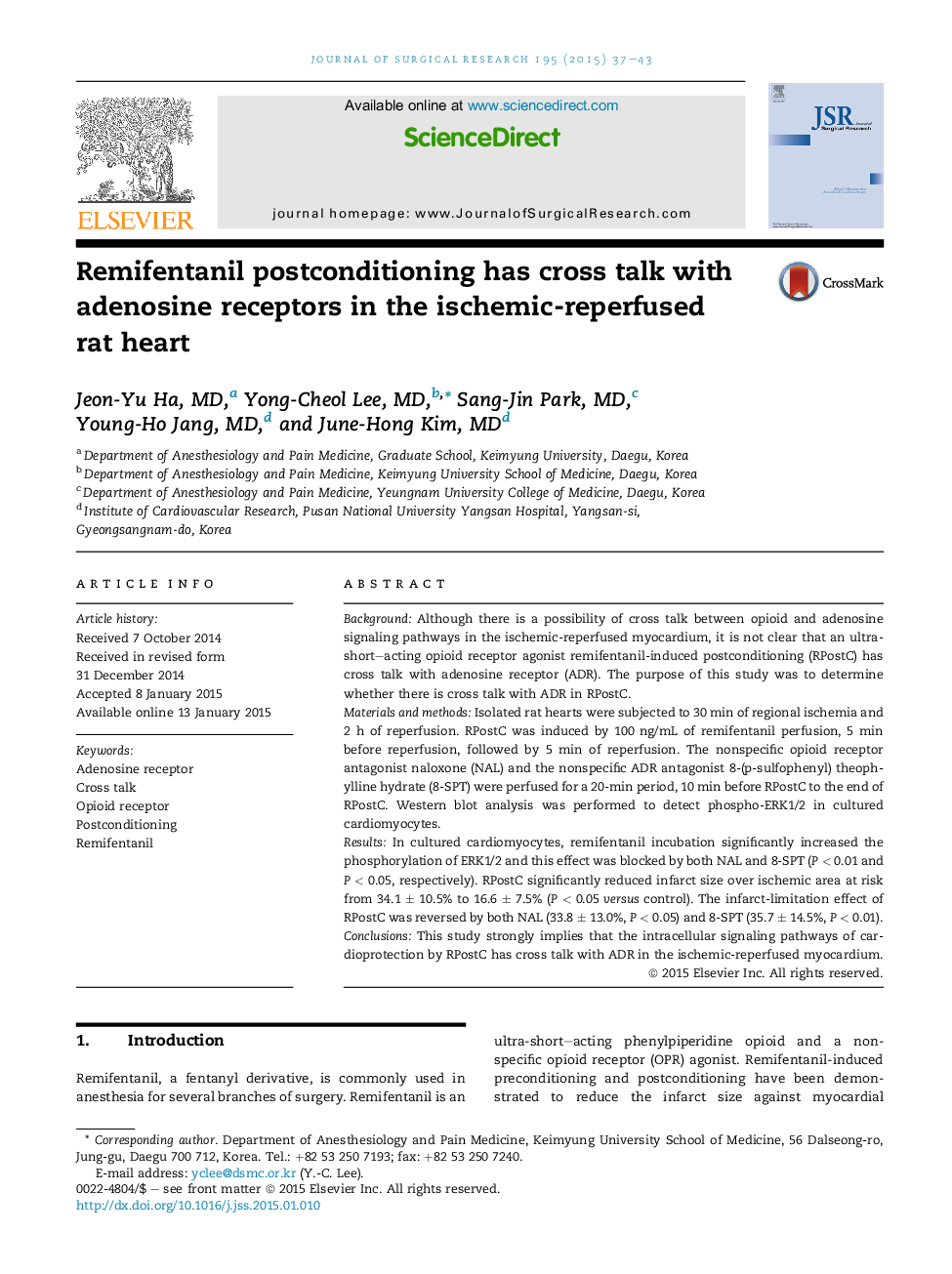| Article ID | Journal | Published Year | Pages | File Type |
|---|---|---|---|---|
| 4299869 | Journal of Surgical Research | 2015 | 7 Pages |
BackgroundAlthough there is a possibility of cross talk between opioid and adenosine signaling pathways in the ischemic-reperfused myocardium, it is not clear that an ultra-short–acting opioid receptor agonist remifentanil-induced postconditioning (RPostC) has cross talk with adenosine receptor (ADR). The purpose of this study was to determine whether there is cross talk with ADR in RPostC.Materials and methodsIsolated rat hearts were subjected to 30 min of regional ischemia and 2 h of reperfusion. RPostC was induced by 100 ng/mL of remifentanil perfusion, 5 min before reperfusion, followed by 5 min of reperfusion. The nonspecific opioid receptor antagonist naloxone (NAL) and the nonspecific ADR antagonist 8-(p-sulfophenyl) theophylline hydrate (8-SPT) were perfused for a 20-min period, 10 min before RPostC to the end of RPostC. Western blot analysis was performed to detect phospho-ERK1/2 in cultured cardiomyocytes.ResultsIn cultured cardiomyocytes, remifentanil incubation significantly increased the phosphorylation of ERK1/2 and this effect was blocked by both NAL and 8-SPT (P < 0.01 and P < 0.05, respectively). RPostC significantly reduced infarct size over ischemic area at risk from 34.1 ± 10.5% to 16.6 ± 7.5% (P < 0.05 versus control). The infarct-limitation effect of RPostC was reversed by both NAL (33.8 ± 13.0%, P < 0.05) and 8-SPT (35.7 ± 14.5%, P < 0.01).ConclusionsThis study strongly implies that the intracellular signaling pathways of cardioprotection by RPostC has cross talk with ADR in the ischemic-reperfused myocardium.
